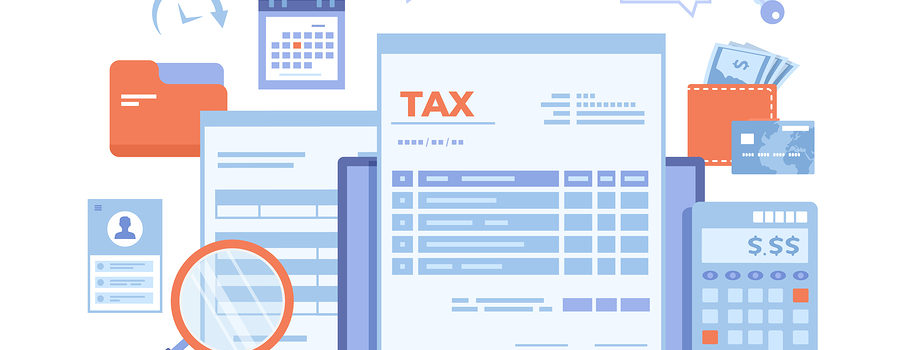What Kinds of Taxes do Small Businesses Pay?
Small business taxes are no joke.
Yes, the Tax Cuts and Jobs Act (TCJA) passed in late 2017 knocked the federal corporate income tax rate down from 35% to 21%. But that’s justthe federal tax.
Indeed, small businesses pay several different types of taxes. And if you’re just getting your company off the ground, you’ll need to understand all the different levies you’re responsible for.
To help you get a better picture, we’ll look at the various types of taxes that small businesses pay.
Income Taxes
In theory, the TCJA made calculating business income taxes a lot easier. It knocked down the various corporate income tax rates to a flat 21% across the board.
For corporations.
The problem is, most small businesses aren’t corporations, but instead are pass-through entities that instead pay taxes at personal federal income rates. That said, certain qualifying pass-through income from these entities enjoy a 20% deduction (through 2025). So if your business income was subject to the top individual rate of 37%, the deduction would take it down to 29.6%.
That said, small businesses may be subject to state and local taxes, too. The Tax Foundation reports that “the weighted average (by population) combined corporate income tax rate in the United States under current law is 25.7 percent.” The good news is that state (and other types of business taxes) may be deductible, too.
Also note that if you take dividends from your business, that’s subject to a capital-gains tax rate.
Employment or Payroll Taxes
Once you start hiring other employees, you’ll be subject to a number of other taxes, including:
- Withheld federal income tax
- Employer and employee Social Security tax
- Employer and employee Medicare tax
- Federal unemployment (FUTA) tax
Self-Employment Tax
If you’re self-employed, you essentially pay Social Security and Medicare taxes through the self-employment tax. The IRS says you’re subject to self-employment tax if one of two things is true:
- “If your net earnings from self-employment were $400 or more.”
- “If you work for a church or a qualified church-controlled organization (other than as a minister or member of a religious order) that elected an exemption from social security and Medicare taxes, you are subject to SE tax if you receive $108.28 or more in wages from the church or organization.”
Sales Tax
Your small business won’t pay state sales taxes right alongside other taxes such as income tax. However, your business must determine what, if anything, it sells is subject to the state sales tax, then be set up to collect and pay those taxes. (How and when you pay taxes will vary by state.)
Gross Receipts Tax
Five states – Delaware, Nevada, Ohio, Texas and Washington – charge “gross receipts” taxes, which are applied to all of a company’s transactions. So that’s not just sales to customers, but even to other businesses.
Franchise Tax
A franchise tax is another state-level tax, which can best be explained as simply a “pay-to-play” tax. Businesses always must pay the franchise tax in the state they’re located in, and may have to pay franchise taxes in other states they operate in. These taxes can be flat-rate, but sometimes scale up depending on a company’s size.
Property Tax
If your business owns any commercial property, such as a brick-and-mortar location or even undeveloped land, you’ll have to pay property taxes to the city or county it’s located in.
Excise Tax
If your business makes certain types of products, or uses various types of equipment or products, you may be subject to excise taxes. Excise taxes are something of a catch-all term that includes everything from environmental taxes to fuel taxes to taxes on certain types of vehicles used on public highways.
Estimated Taxes
Depending on your structure, you may have to pay estimated taxes on a quarterly basis. From the IRS:
“Individuals, including sole proprietors, partners, and S corporation shareholders, generally have to make estimated tax payments if they expect to owe tax of $1,000 or more when their return is filed.”
“Corporations generally have to make estimated tax payments if they expect to owe tax of $500 or more when their return is filed.”
Small business taxes are doubly cruel: They’re complex, and they’re unavoidable. But we can help take the stress out of them. McManamon & Co. offers a wide range of tax services, including assisting with federal, state and local tax obligations, and even payroll taxes. Plus, we can help you with a comprehensive strategy designed to lighten your tax load by taking advantage of the IRS’ various allowances.
Don’t struggle while guessing your way through the litany of small business taxes you’re accountable for. Call us at440.892.9088 or contact us online today.
Tags: McManamon, small business, small business taxes, taxes | Posted in accounting, McManamon & Co., small business, small business taxes, taxes
